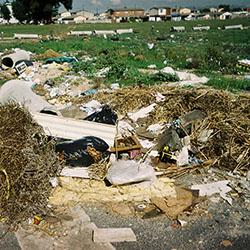Strengthening Climate Resilience in African cities
The African Centre for Cities, one of Mistra Urban Futures partners, has collaborated with the Climate and Development Knowledge Network in studies of climate change and informality - and vulnerability and climate proofing - in three African cities: Accra (Ghana), Addis Ababa (Ethiopia), and Kampala (Uganda). The innovative exercise featured co-production methodologies: it involved city planners and environmentalists, and included two expert workshops hosted in Cape Town.
In the Mistra Urban Futures spirit, the intended audience is practitioners who can make a practical difference. The research meshes with the Africa Peer Learning Programme, a joint initiative between Mistra Urban Futures and ACC, in partnering with African cities to learn from case studies about practical ways of redressing urban risk and poverty.
The final joint report Strengthening Climate Resilience in African cities – A framework for Working with Informality. One of the authors, Anna Taylor, is a PhD researcher embedded in the City of Cape Town as part of the Knowledge Transfer Project, a Mistra Urban Futures project.
The Report questions the opportunities and challenges climate compatible development presents in the context of rapidly growing cities across the African continent, where two key features are widespread: informality and deeply entrenched inequality. Informality comes in many forms, including settlement on unplanned land without public services and bulk infrastructure; unregistered housing construction and transfer; informal and insecure jobs; and unregulated trade and service provision.
In the light of the threats posed by changing climatic conditions and the prevailing realities of economic and political disempowerment, how might we go about grounding and working with the idea of climate compatible development so that we can envision and build new urban futures in cities across Africa that are vibrant, inclusive and sustainable?
The report is intended mainly for use by city practitioners operating in local government agencies and civic organisations. It distils a set of eight principles for engaging in such development work, and suggests an eight-step process as a guide for undertaking climate compatible development in African cities that factors in climate dynamics alongside the socioeconomic, spatial and political dimensions of development.
Download the report Strengthening Climate Resilience in African cities – A framework for Working with Informality
Read about the Knowledge Transfer Programme
Read about the Africa Peer Learning Programme







